An English Degree, No Electricity, Phone or Internet for 5 Days, Duality... Oh, and Pandemic4/19/2020 In one of my favorite Pearl Jam songs, "Thumbing My Way," Eddie Vedder writes... There's no wrong or right, but I'm sure there's good and bad. The questions linger overhead. No matter how cold the winter, there's a spring time ahead... I smile, but who am I kidding? Taking on this principle, that I think of as everything is shades of gray, I have found a freedom from the heaviness placed upon my spirit by a society that values labeling everything so that constructs of conformity can be created to judge oneself, their social position, their righteousness, and their ability to succeed over the likelihood of failure. In other words, a view of people and situations, being defined as "positive" or "negative" in nature by the stories and principles which precede them, and therefore the experience you have of them following suit. So much of our lives are labeled along this dual spectrum before we even have the opportunity to fully experience it ourselves. It equates to us being told what to experience, how to react to it, and what we should feel about it. It can so muddy the way we access life, that many of us become dull or unsure of what we actually feel or enjoy. How do we know, if everything comes to us prepackaged, label applied? To experience things labeled as "negative" has become so unacceptable in our culture that a space to process our feelings around those experiences, we inevitably have, is hard to find. To express feelings that are considered "negative" has become taboo. Frustration, under these conditions, if expressed, can result in our own label as a "negative" person. Our grief process suddenly has an arbitrary time limit, and it too is labeled "negative" as we're accused of dwelling and being unable to "just let go." Yet, in this human experience, to deny the importance of the entire gamut is to drown the possibility of anything to have significant meaning -- for us to better understand ourselves or others. How is a fullness to be experienced without access to the complete range of the spectrum? There is no doubt that tragic life events mark us at times in irrevocable ways. Not all of them can be said to be advantageous to our own well being or even, perhaps, to those our wounded self encounters. For myself, multiple childhood traumas left me with reactionary patterns, physical and sexual shame, and social anxiety in particular situations that I've had to work very hard to accept or transform into something that gives me the space to have my fullest expression as an adult woman. These traumas were reinforced, changed, or exacerbated by several additional traumas I have experienced as an adult. Without going on about the details of those traumas, I want to express that to varying degrees, I understand trauma to be a universal experience. How we process the trauma, while following certain tendencies identified by science, is largely individual. What seems a minor occurrence to one individual may send another to the brink and vice versa. Neither individual is wrong in their experience of the occurrence. Many variables are at work, and it is unhelpful for us to classify another's reactions based upon our own or our analysis of what they should be, as we are outside players. I am writing this during a pandemic where we have been asked to shelter in place, practicing physical distancing from non-household members as much as possible. Those in positions and careers deemed non-essential have been restricted from work and providing for their families with no tangible timeline for a return to anything resembling normalcy. Children are home from school and separated from friends. Some parents are juggling attempts to earn income from home while also helping their children complete school work there. This assumes every family has a laptop or other device that can be used and that there is enough time in the day for everyone to do their tasks on that device if there are not multiple of them. Essential workers and healthcare professionals feel more at risk for contracting and spreading the virus so much so that some are choosing to house themselves away from their families, causing further isolation and financial burden. Unemployment has been expanded to the self employed and small business owners, but computer systems have not caught up to the demand or new parameters, and some are being denied. Again, no real timeline. No idea of what we'll return to, and many unsure if the job they worked so hard to create for themselves will exist in our future. I'm writing this at the hardest moment I've experienced in all this. A tornado like storm has taken out power for thousands of people in my area. Mine has been out for 3 days now. (It was out 5 total.) It's maybe 40 degrees Fahrenheit in my house. I'm sitting on my couch in my winter coat, under quilts, my hand is almost too cold to move my pen across the paper. I was once building my local yoga and movement clientele, living in a two income household - jobs which were built from the ground up so we could remain in our community where we were raised and contribute to creating whatever could be mustered in our economically struggling area. My philosophy had always been not to sell my soul to money and a rat race when I was free to build some version of a dream and come home from my work more fulfilled. Now, no one in my household is allowed to work outside of the home. Our work, as it was known, may not exist for some time. The task is, now, to try to obtain unemployment, and create income that's possible from home, trying to sale online classes, artwork, editing services... something. Sales of anything in such an economically dire time is a shot in the dark. In the last month, I have found myself needing to accept donations of food and money, worrying if I will need to relocate during a pandemic, concerned about the future for my children, distrusting information from most sources, playing out scenarios to earn money, unable to do anything aside from hours of yoga and physical movement, and now, being reminded of times when I was younger and entire days were spent trying to stay warm and find food. There have been countless opinions written in the last weeks about how we should be spending this time. People telling us how we should be feeling. Most seem to be saying that we should be taking this time to replenish, reassess, and reevaluate. Recommendations are given to get creative, play, explore new hobbies, and enjoy time with the family. All of these things are worthy endeavors and may be accessible to some, but for others of us getting to a state where those things are mentally possible can feel rather impossible. For many of us, including myself, this time is the ultimate test of our resiliency and the tools we have worked so hard to obtain for our personal wholeness and growth. This is a trauma. A collective trauma, and with everything we have we are battling reverting to old ways of coping, of simply hoping to survive while discarding the goal of thriving for the time being. Keeping afloat is overwhelming enough. It's April. This morning, the temperature is cold for this far into spring. I'm wearing a flight jacket with Navy patches that belonged to my Papaw Hansel who served in the Korean War as a frogman, which he explained to me was a precursor to the Navy Seals. He once told me a story of standing on the deck of his ship in open ocean. Enemy planes had been circling overhead for hours and they were sitting vulnerable. He said that tension got so high many were locking themselves away below deck puking in fear. He chose to be there, on deck, watching the enemy and flipping them the bird. He told me sometimes they'd fly low enough that he could see the whites of their eyes and he smiled. All they could take from him at that point was his life, and he wanted them to see his smiling face. They eventually abandoned the intimidation tactics and flew away. Papaw died of bone cancer an octogenarian. No too long ago, but long enough.
Sometimes, though, smiling in the face of threat is not possible. Perhaps a greater good is to be considered and no one can agree on an approach despite working toward the same goal. My dad is a huge fan of the Webber and Rice rock opera, Jesus Christ Superstar. I grew up with it as a regular lullaby. He can sing every word to every song from beginning to end. Judas Iscariot opens the story and as much as it is the story of Jesus the Christ, I always felt more drawn to Judas. The empath in me felt his worry and his desperate attempts to preserve his friends and their ideas when the world seemed to be falling apart. What do you choose to save under those circumstances? What do you trust? Judas opens, "My mind is clearer now. At last, all too well, I can see where we all soon will be." He goes on to implore Jesus to listen, to remember they are the weaker underdog. That if they make too much noise, they'll be crushed, and that he is a man and will die, perhaps taking out the rest of them too. Judas asks his friend to remember his loyalty, saying, "Please remember that I want us to live, but its sad to see our chances weakening with every hour..." Judas did not want to betray Jesus. He wanted to live. He wanted the principles they were teaching to live. In his duress, the only way he saw to do this was to sale out his friend. "Our ideals die around us all because of you. And now, the saddest cut of all -- someone has to turn you in like a common criminal, like a wounded animal..." I cannot help but see this very scenario playing out with everyone spouting the results of their fears on social media. My maternal grandmother, who I called Mimi, told me the story of the Judas Tree. The Judas Tree is another name for the redbud tree common in the eastern Kentucky hills. It blooms in early spring, right before the dogwood, heralding the coming relief of a break in the weather. Mimi said that when Judas decided to end his own life after ushering in the death of his friend, he chose to hang himself from a sturdy, tall tree with white blooms. The tree took the shame of Judas as he died, shriveling and gnarling. Its blooms shrank and blushed with the guilt and embarrassment. It became our beloved redbud tree. It grows in our hills alongside the dogwood who's blooms are known to tell the story of Christ. Judas still the dark harbinger of beauty and light. I always found it hauntingly comforting that the leaves of the redbud are heart shaped. In Hermetic philosophy, the Principle of Polarity/Duality, is stated as follows: Everything is dual; everything has poles; everything has a pair of opposites; like and unalike are the same; opposites are identical in nature, but different in degree; extremes meet, all truths are but half-truths; all paradoxes may be reconciled." Everything existing on this plane that is experienced through individual perception is a spectrum, a double sided coin, no matter how seemingly concrete. Our existence is multifaceted, double jointed, layered, and told back to us in stories. In the bittersweet story of Judas and Jesus, the idea of duality is clearly illustrated. Even in the sequencing of the blooming trees that carry their tale, it is clear. Without Judas, Jesus is not possible. Their story plays out in a full spectrum of continuous love. During the last argument between Jesus and Judas in Jesus Christ Superstar, Judas delivers the lines -- "To think I admired you, for now I despise you!" Jesus answers, calling him a liar. Judas understands that Jesus realizes the necessity. Judas asks him what if he didn't betray his whereabouts, stayed, and ruined his ambitions. Jesus screams at him to go. Love and hate are the same in nature, only varying in degree. One can quickly appear to be the other, as the energy applied toward the feeling of it shifts. It seems then, that on this plane of existence, that duality is necessary for us to make sense of ourselves and the lives we are living. Otherwise, would we even know we are alive? Would it matter? Have we become so adverse to the range of human experience that we are paralyzing ourselves to life until death stares us in the face and we have to pay attention? Are we so appalled by and fearful of death, we forget to live? How often does hardship become the impetus for the most beautiful growth? I know, sometimes, within our awareness, nothing good comes of tragedy, especially that which we perceive as preventable. One of the things that happened to me repeatedly over the course of a few years when I was a small girl can be described as nothing but atrocious. I didn't ask for it. I was powerless. I didn't deserve it. I still wear its physical and mental scars. I cannot see anything good for me that has come of it. Yet, because of the experience, I feel I am more open to being present for the story of others. It has led me to a portion of my work, and perhaps, even the ability to write this piece. I wouldn't be the me that I am without it, the wounded animal that I am. Is that good? Bad? Does it matter? That event continues to impact me and those I encounter. When I listen to another's story without judgement, is the thing that happened to me made new and good? I know this current experience is marking me. I know it is changing the story for all of us. We didn't get the trigger warning, and here we are. Dust made of many of our plans. All we have is now and the opportunity to interpret the conditions we are actually in, and decide to do one of three things -- accept them, change them, or wait for more information. The alternative is to wallow in the mire. But, the time to hesitate is through. Try now. We can only lose, and our love become a funeral pyre. Regardless, I am lighting my fire.
0 Comments
Leave a Reply. |
AuthorKelli Hansel Haywood is the mother of three daughters living in the mountains of southeastern Kentucky. She is a writer, weightlifter, yoga and movement instructor, chakra reader, and Reiki practitioner. Categories
All
Archives
September 2021
|
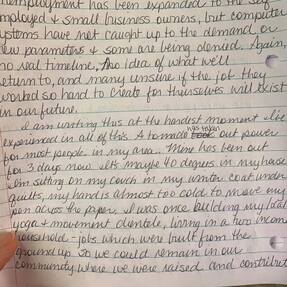
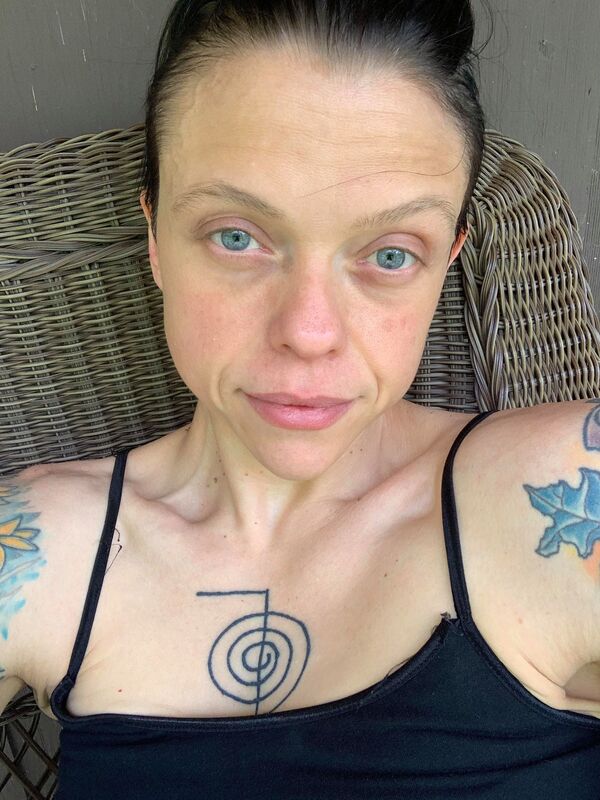
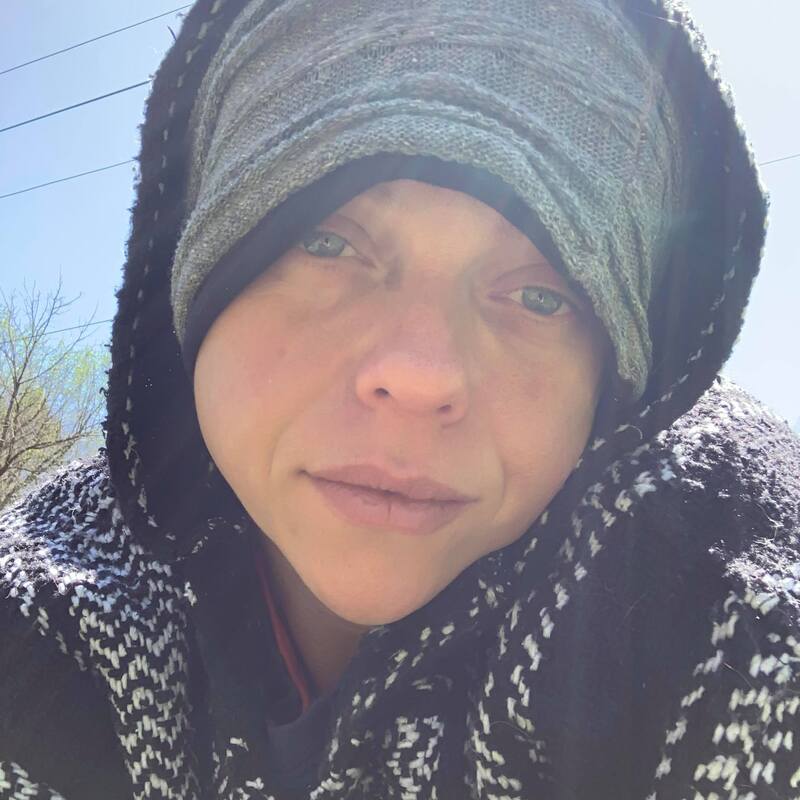
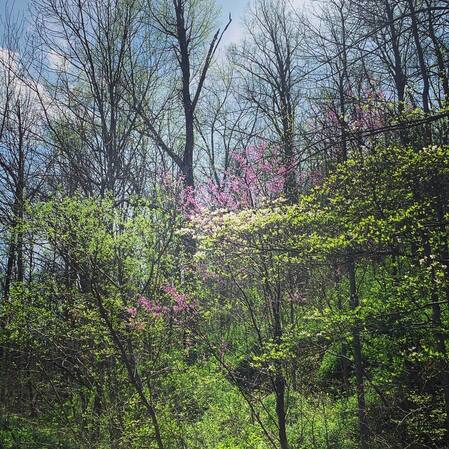
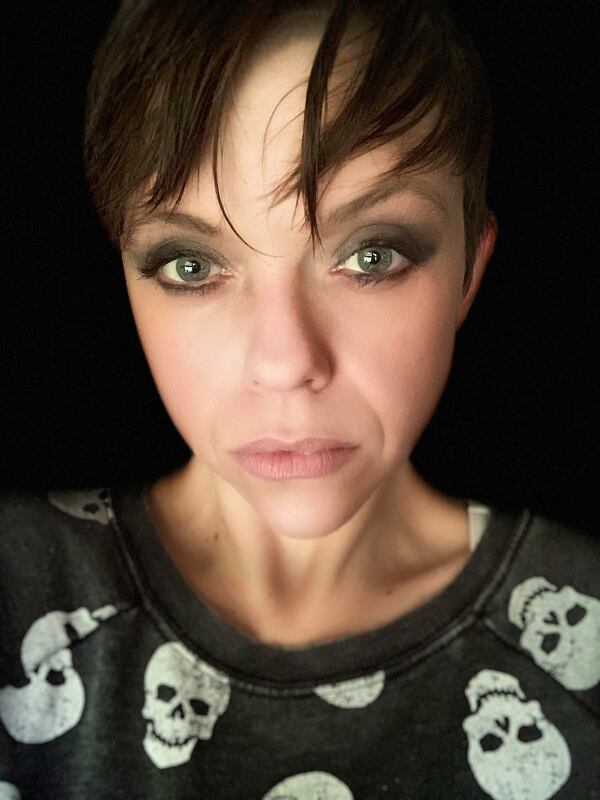
 RSS Feed
RSS Feed